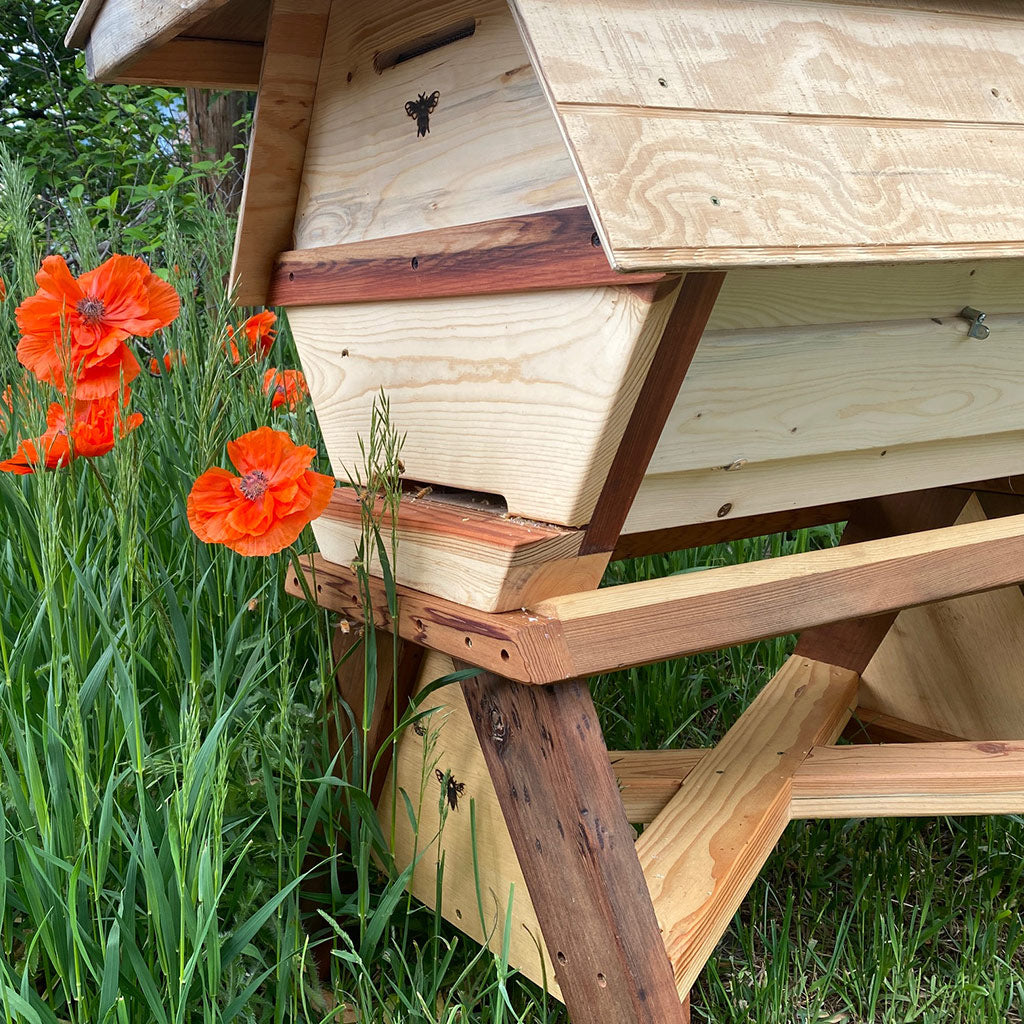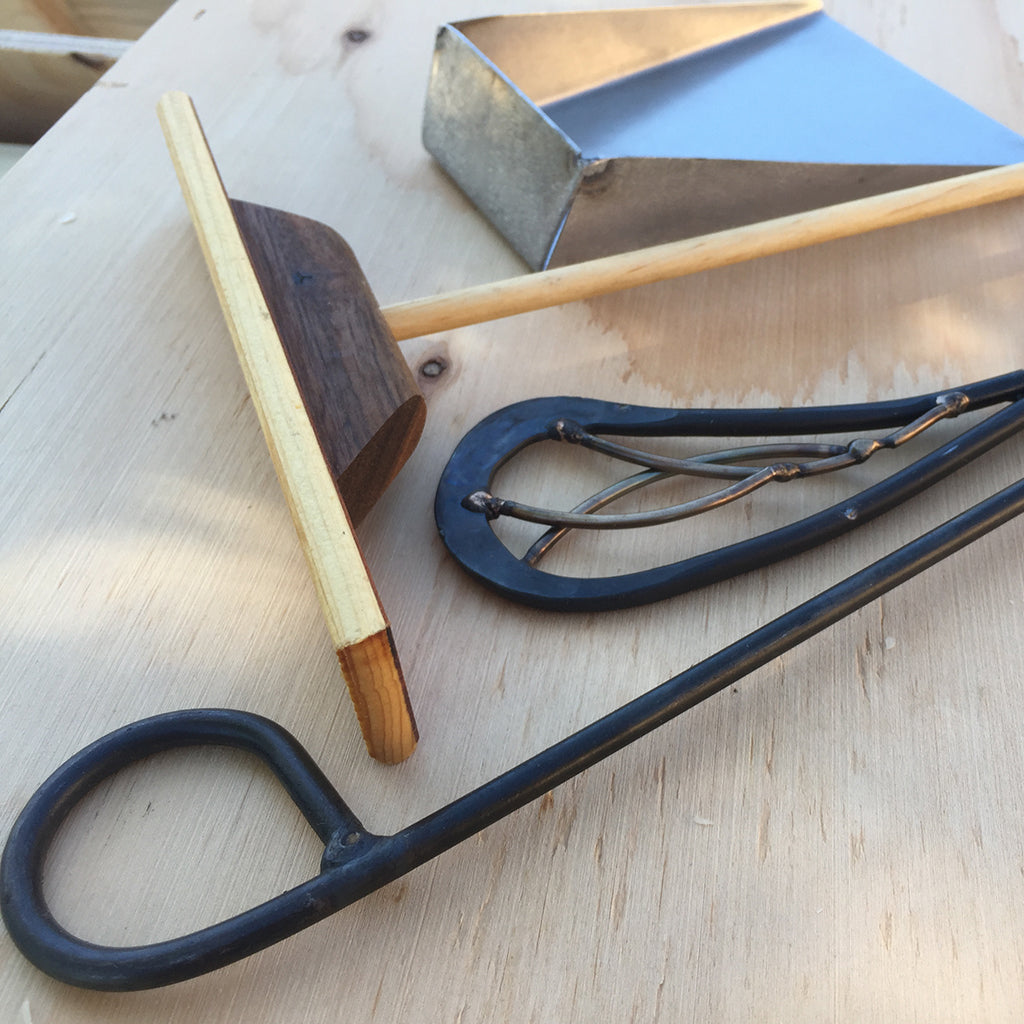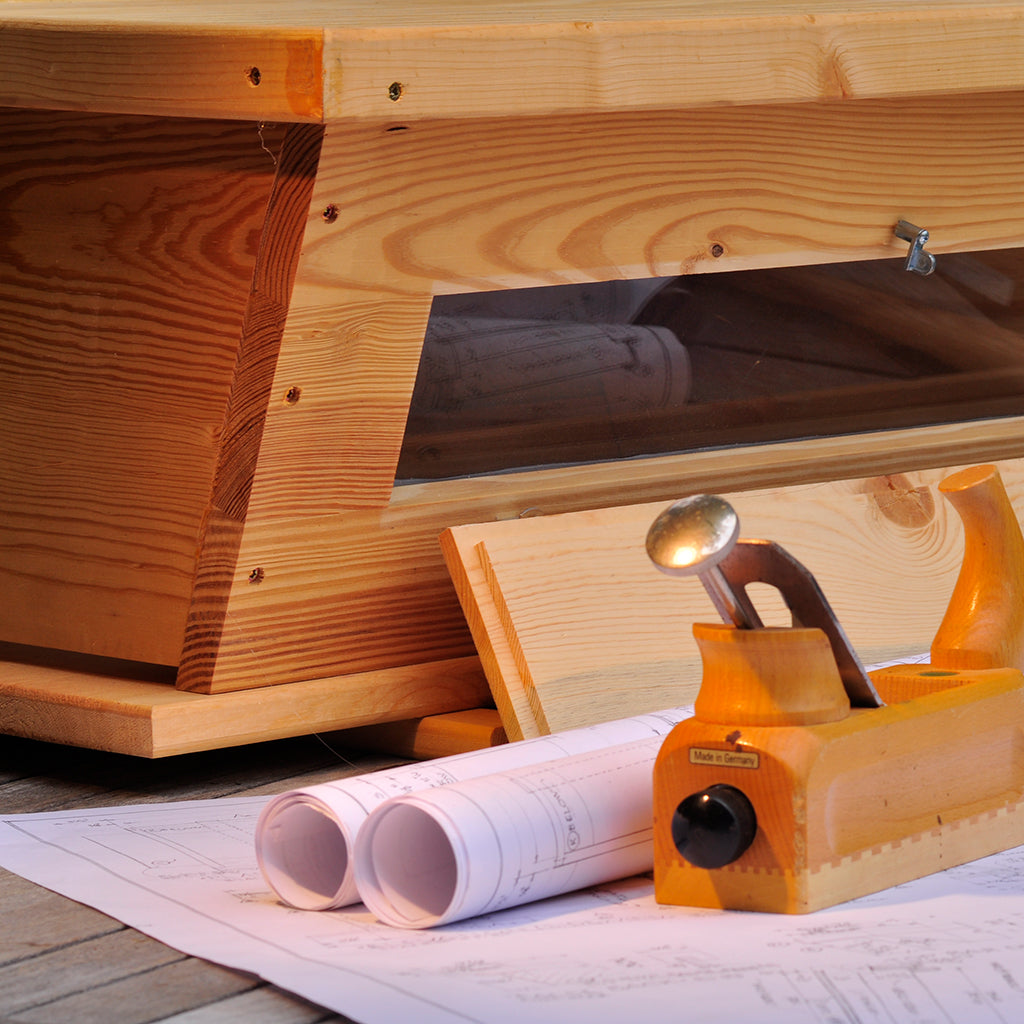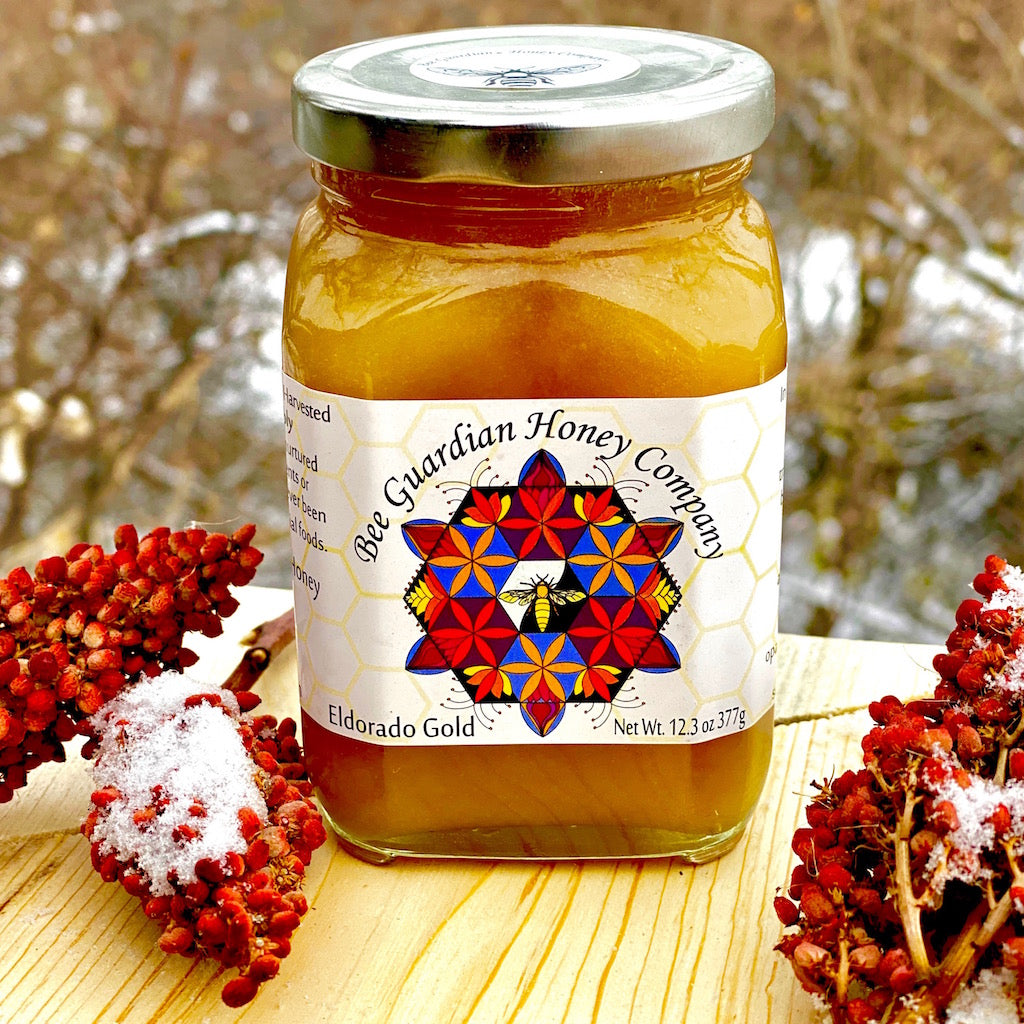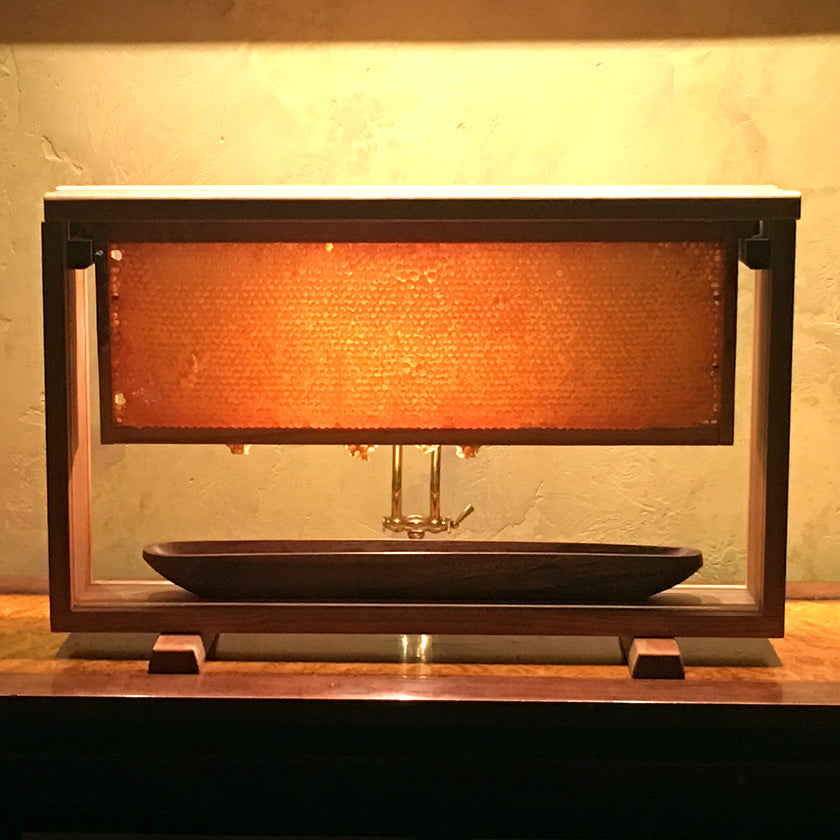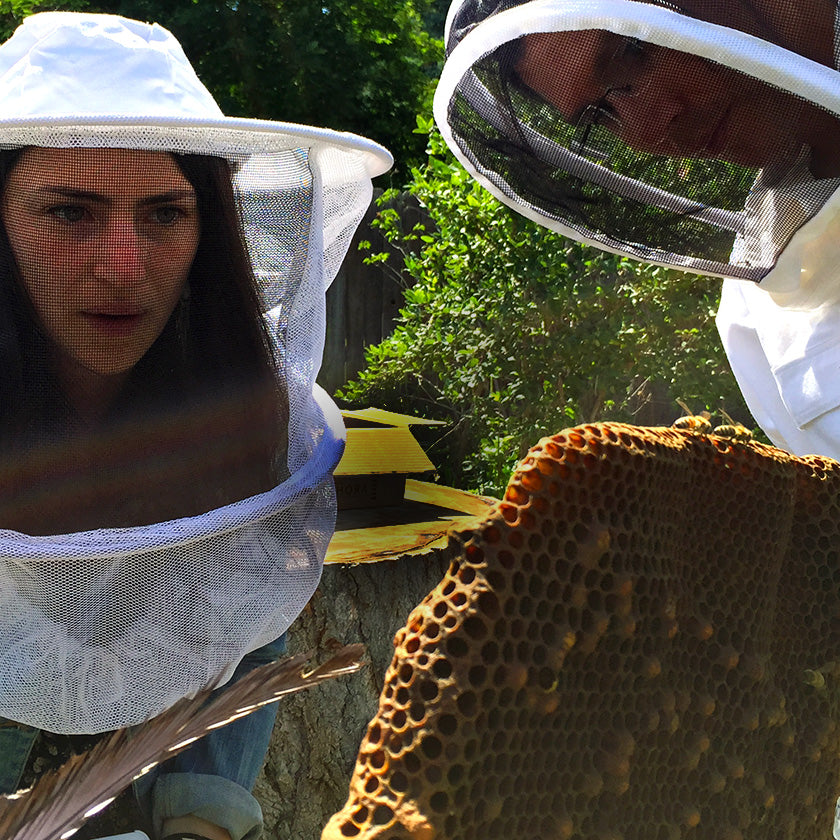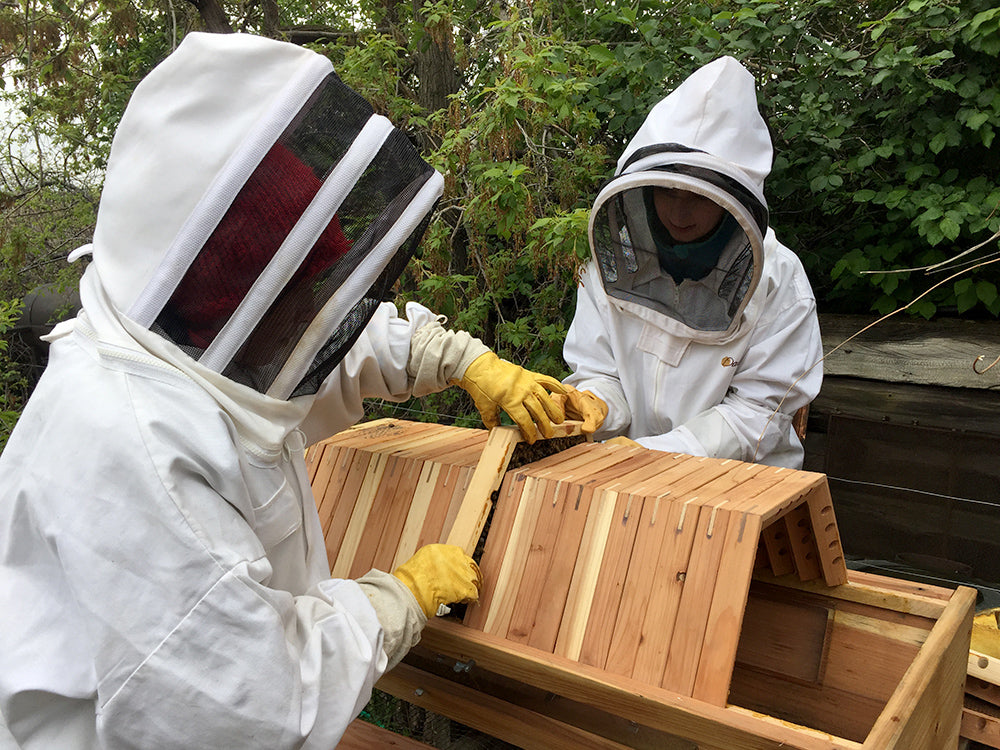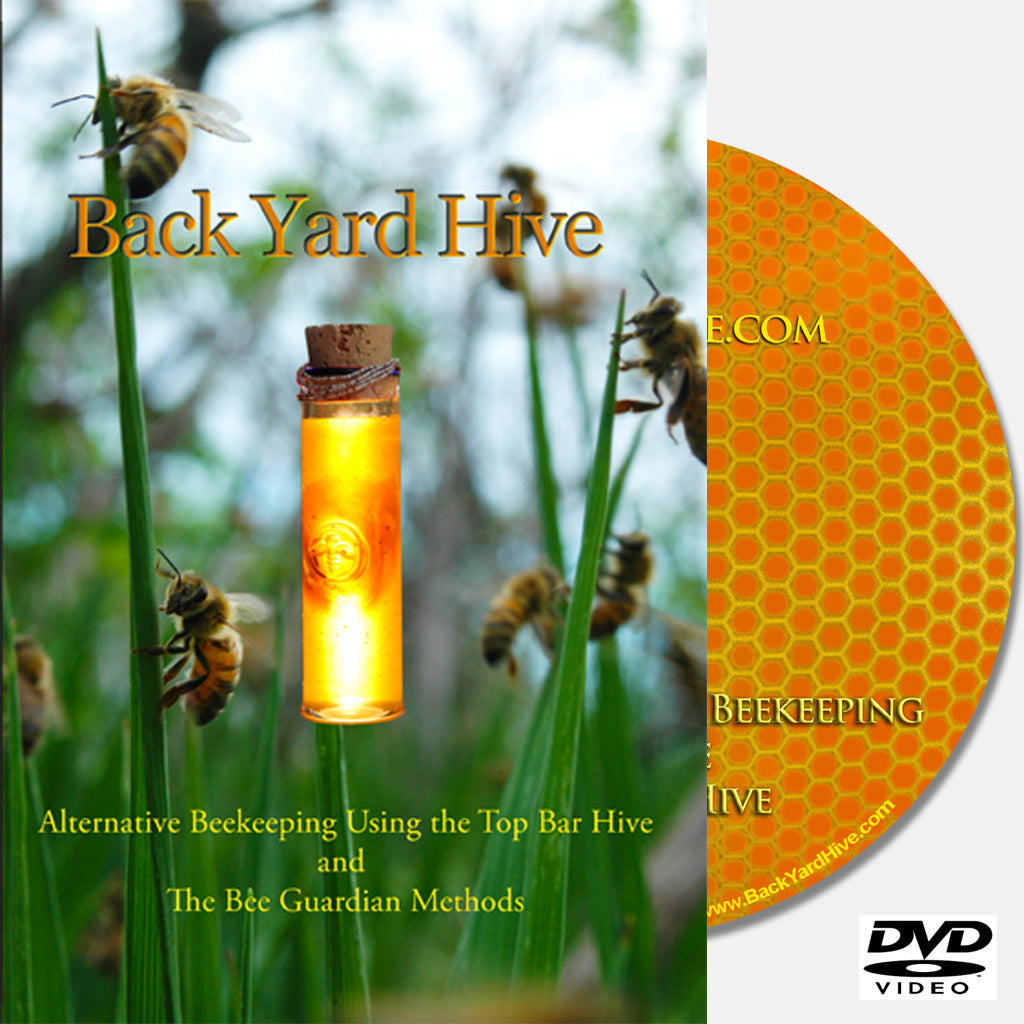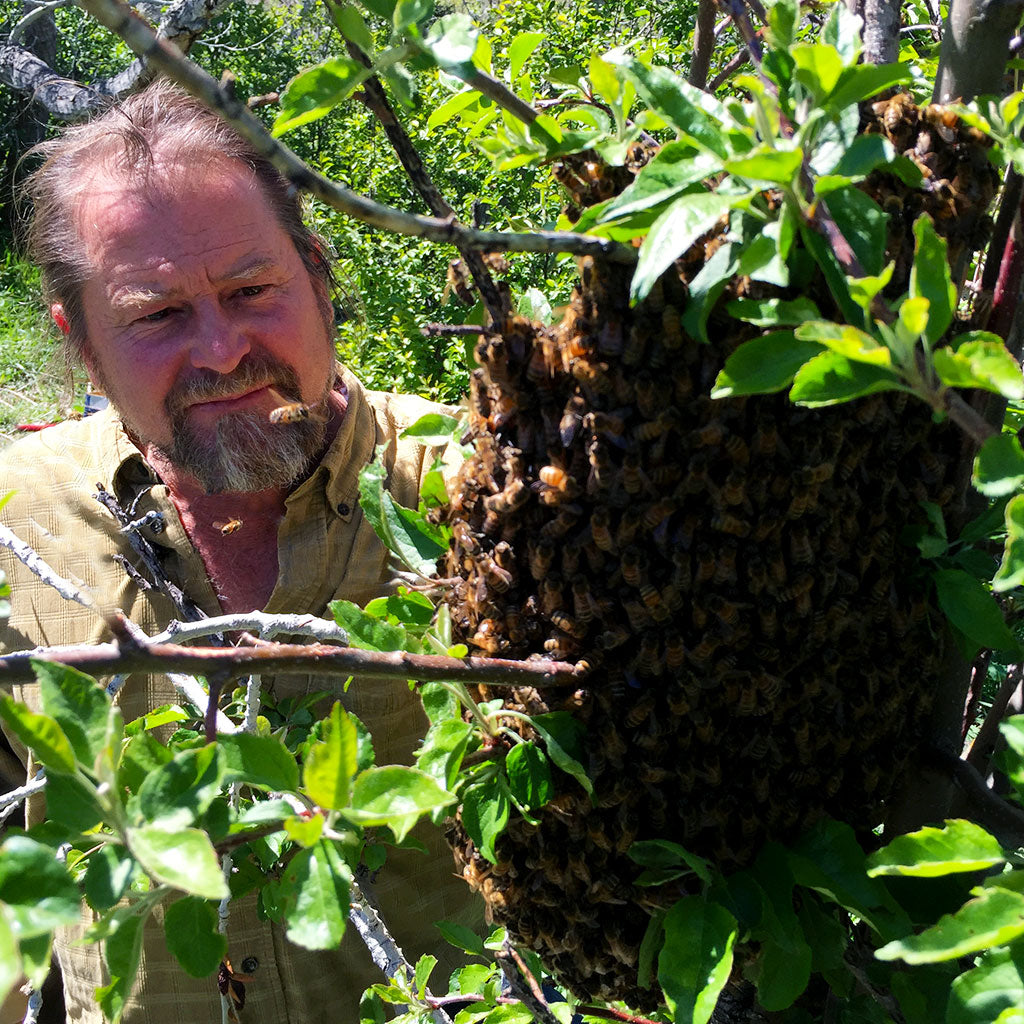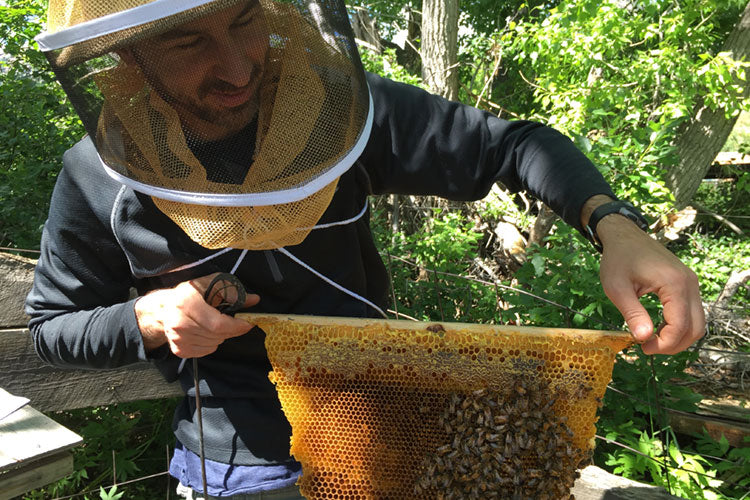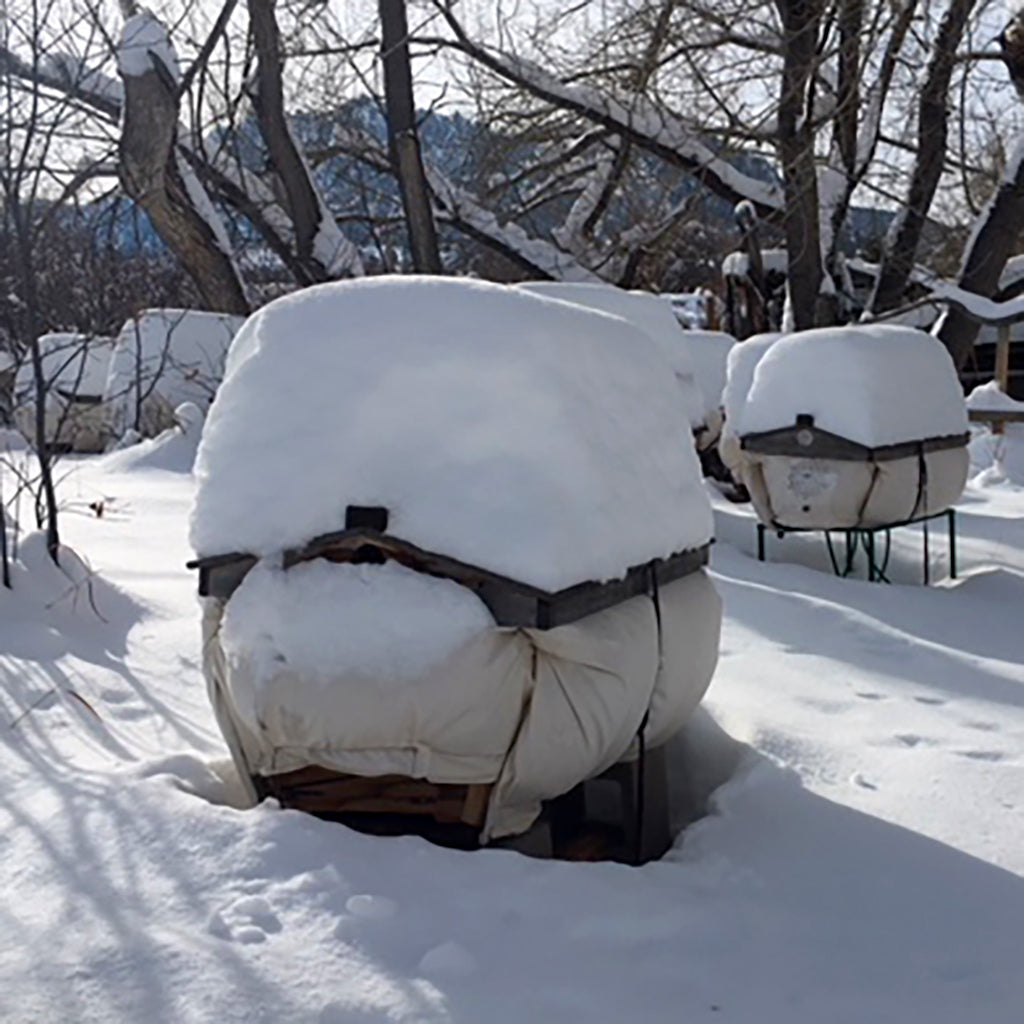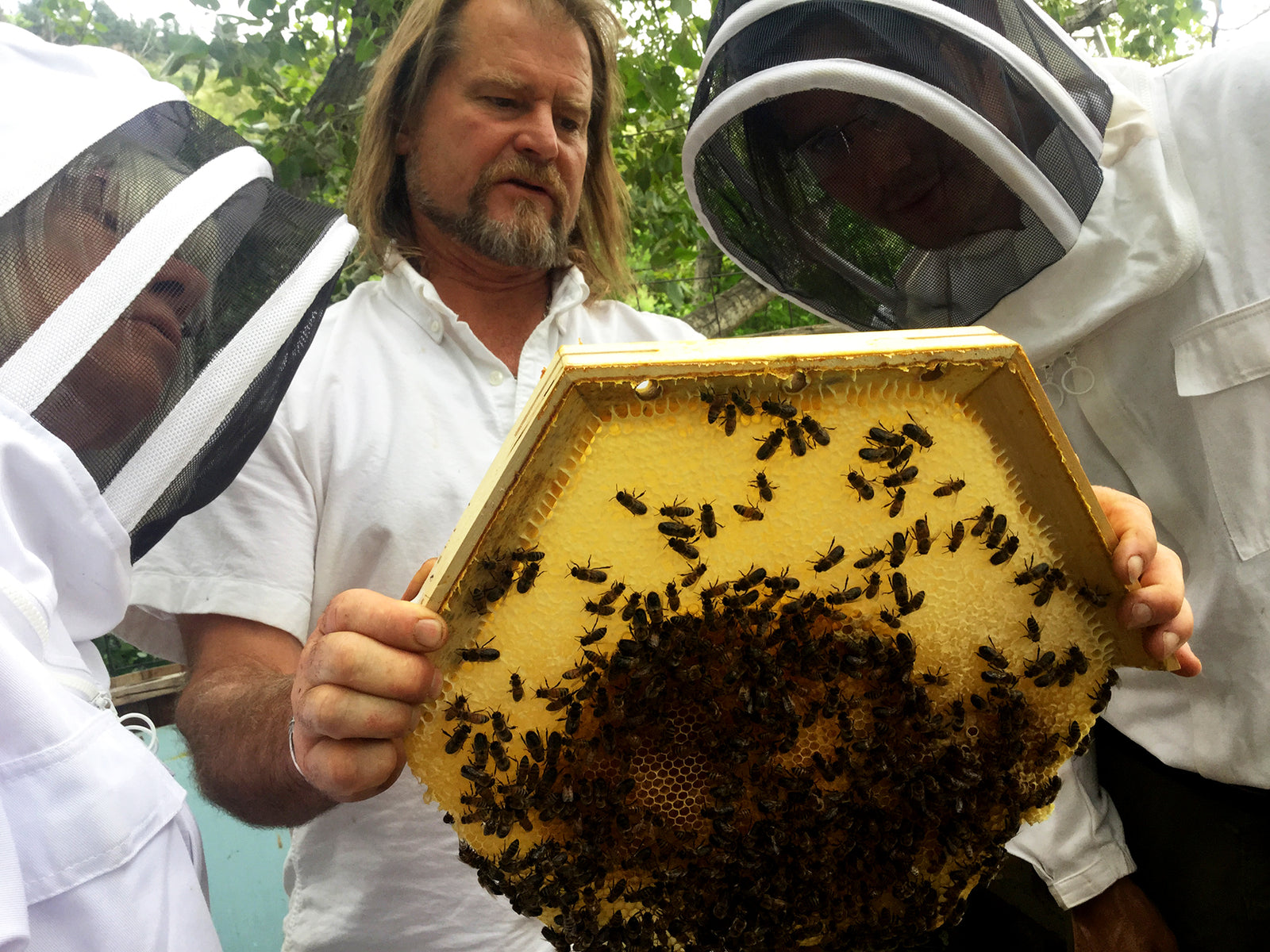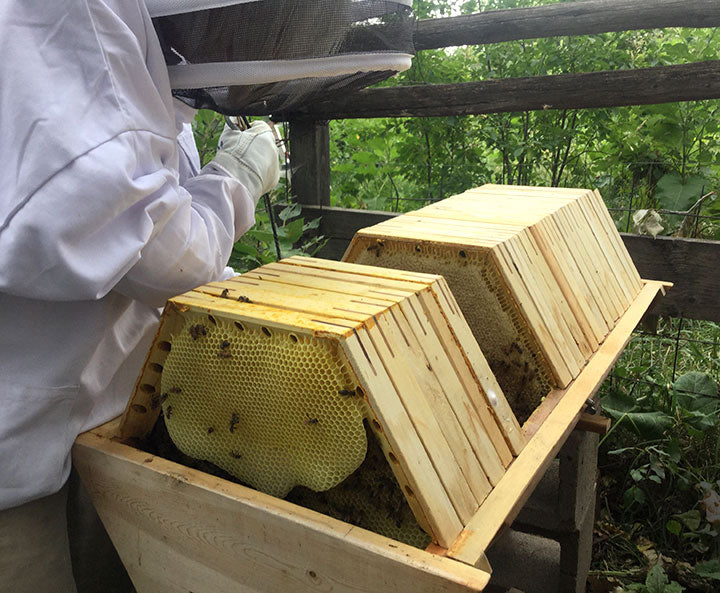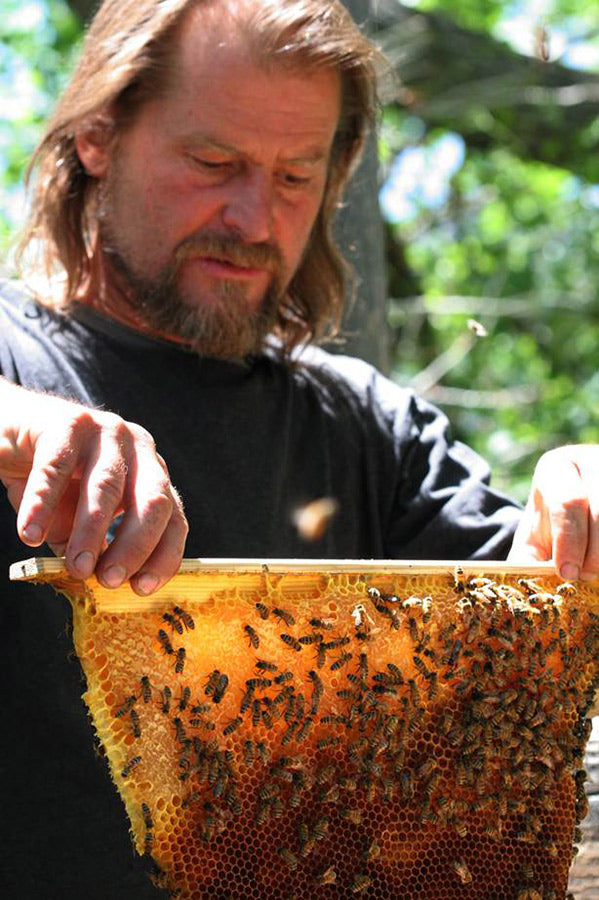Some of My Most Enjoyable Times as a Beekeeper have Involved Sharing my Hobby with Fascinated Friends and Family, Eager to see a Working Beehive
The benefits of keeping bees are numerous! The first things that most people think of are either the rewards of harvesting your own honey or the positive impact the increased pollination will have on your garden.
While these are great reasons to have a beehive, don't count out the many other bee products you can harvest from a hive, the positive impact the bees will have on the extended environment around you, or the remarkable adventure that beekeeping can be.
Keeping bees has countless personal benefits for you and your family, starting with honey!
Honey is a fascinating substance. Bees make honey out of flower nectar for use as a food source, which is then stored in the combs that the bees build.
Harvesting this honey is done either in late fall when the bees have filled their hive with honeycomb, or in the spring after the bees have safely over wintered and are ready to create a new food supply. Let me tell you , it is a real rush when you gently remove your first comb, dripping with honey, from your very own hive.
But nothing compares to taking that first taste -- straight from the comb while it's still warm! You'll never look at store bought honey the same way again.
Honey Has Tremendous Health Benefits as Well
Fresh honey not only tastes great, but also can be beneficial to those with allergies.
The theory is that since the bees are collecting pollen where you live, eating the small amounts of pollen present in local honey can actually immunize the body against the pollen so that there is minimal irritation during allergy season. Many former allergy sufferers swear by it.
However, did you know that honey also has a variety of other uses? Honey, with its anti-bacterial and anti-microbial properties is currently being studied as a wound treatment, especially for burns, and it has also been used for centuries as a skin and hair beautifier in recipes for face masks, shampoos and bath oils among other things.
The highly industrious bees also create a variety of other fascinating substances, including propolis, bee pollen and royal jelly.
Bees make propolis from the sticky resin found on trees. This substance is used to "caulk" cracks in the hive to keep out wind and rain, make entrances smaller, or attach comb to the side of the hive.
Royal jelly, the food used to nourish growing future queens, also has powerful anti-bacterial properties, while bee pollen is touted by many to be one of the most complete foods available, with a wide range of nutrients including polyphenols, enzymes, beneficial fatty acids, free amino acids, vitamin complexes, chelated minerals and trace elements.
Do You Have a Garden? Beekeeping Will Give You Legions of Eager Pollinators Working to Make Your Garden Yield More Produce Than You Ever Thought Possible.
Whether you have a formal garden, a riotous mass of wildflowers, or a harvest of vegetables and fruits, you won't believe the difference that honeybee pollination can make. Flowers and plants will be much more profuse, and fruit and vegetable yields will increase dramatically.
Not only do honeybees have an enormous positive impact on your garden, but their nectar-gathering range allows them to also fly outside your yard and pollinate an extended area. This pollination helps the ecosystem remain diverse and sustainable.
Why can one hive make such a big difference? Because the bee population in most areas is rapidly declining.
The problem of the reduction of the bee population has reached a level where there just aren't enough pollinators to support a healthy production of fruits and vegetables.
Pesticides have wiped out most of the native varieties of honey bees (and other bee pollinators) in the US. Current bee populations are also under attack by parasites and disease -- and they are loosing the battle. Commercial beekeepers have to use cloning methods to keep their hives filled with bees.
You may have read the news accounts this spring about the Varroa Mite, which is causing, in many cases, up to a 50% decline in the bee population year-to-year. This is bad news for all of us. Bees are a key element in the food chain that supplies humans (and animals) with fruits and vegetables. Without bees, we don't eat. Or at least we don't eat anything resembling our current bountiful diet.
Fortunately, in my experience, it seems that commercial hives are the ones that are most susceptible to varroa mites and other diseases. If you use a top bar hive and follow holistic beekeeping practices, your bees will have a strong, healthy immune system that naturally and effectively fights parasites and disease.
Keeping your own hive helps not just your own garden, but also the shared ecosystem around you!

